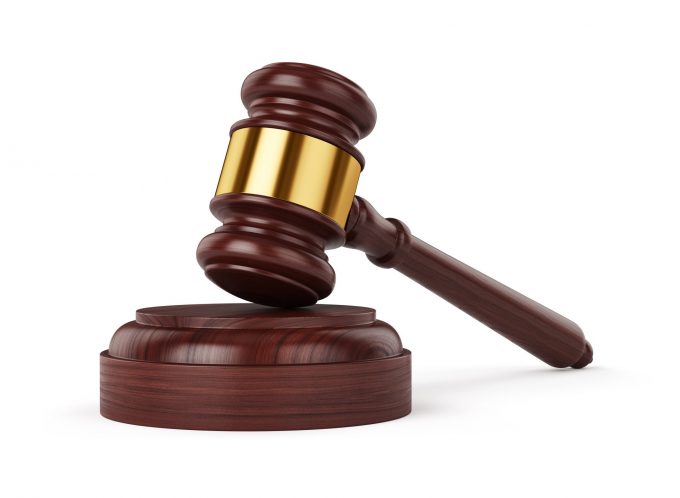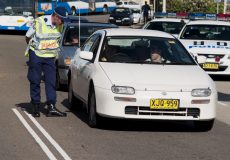
Serving on a jury is a new experience for most people. Whilst some people see it as an honour, others wish to avoid duty at all costs. The following is a guide of frequently asked questions relating to jury service.
Selection and Eligibility
Jury duty and the selection of jurors is governed by the Jury Act 1977 (NSW). In NSW in any criminal proceedings in the Supreme Court or the District Court that are to be tried by jury, the jury is to consist of 12 persons.
Potential jurors are not required to disclose their identities except to the sheriff. Jurors are to be referred throughout the proceedings by numbers provided to them by the sheriff. The defence is not entitled to any information concerning any of the jurors.
When selecting jurors, a pool of possible jurors are lead into the court by the Sheriff. The trial judge must direct the prosecutor to inform the members of the jury panel of the nature of the charge, the identity of the accused and the principal witnesses to be called. The judge then calls upon members of the panel to apply to be excused if they cannot bring an impartial consideration to the case.
Both the prosecution and the defence each have three objections to any potential jurors. Such objections are made without the possibility of any questions being asked of juror. If objected to by either the prosecution or defence the juror is immediately excused.
All individuals registered to vote are potential jurors. Simply because you do not want to be a juror, you are a sole business owner, you are a conscientious objector, or because it will have a financial impact upon you does not provide you with an exemption.
The following are persons who have a right to a claim an exemption from serving as a juror:
- Clergy.
- Vowed members of any religious order.
- Persons practising as dentists.
- Persons practising as pharmacists.
- Persons practising as medical practitioners.
- A person employed or engaged (except on a casual or voluntary basis) in the provision of fire, ambulance, rescue, or other emergency services, whether or not in the public sector.
- A person who:
7.1. within the 3 years that end on the date of the person’s claim for exemption, attended court in accordance with a summons and served as a juror, or
7.2. within the 12 months that end on the date of the person’s claim for exemption, attended court in accordance with a summons and who was prepared to, but did not, serve as a juror. - A person who is entitled to be exempted under section 39 on account of previous lengthy jury service.
- A person who resides with, and has the full-time care of, a person who is sick, infirm or disabled.
The following are persons who are excluded from jury service:
Persons having committed certain serious offences excluded from jury service for life
A person is excluded from jury service for life if the person has been found guilty or convicted of any of the following offences (wherever committed):
- an offence that, if committed in New South Wales, would be punishable with a maximum penalty of life imprisonment,
- an offence that involves a terrorist act within the meaning of the Terrorism (Police Powers) Act 2002,
- an offence under Part 7 (Public justice offences) of the Crimes Act 1900,
- a sexual offence within the meaning of section 7 of the Criminal Records Act 1991.
Persons serving or having served sentence of imprisonment
A person is excluded from jury service while serving a sentence of imprisonment (in New South Wales or elsewhere) for an offence committed when the person was of or above the age of 18 years.
A person is excluded from jury service:
- for 7 years after serving such a sentence or sentences of imprisonment of less than 3 consecutive months, or
- for 10 years after serving such a sentence or sentences of imprisonment of 3 consecutive months or more.
Persons holding particular office
A person holding any of the following offices is excluded from jury service:
- the Governor,
- a judicial officer (within the meaning of the Judicial Officers Act 1986),
- a member of the Executive Council,
- a member of the Legislative Council or Legislative Assembly,
- the Ombudsman, a Deputy Ombudsman or an Assistant Ombudsman.
Persons who are Australian lawyers
A person who is an Australian lawyer, whether or not an Australian legal practitioner, is excluded from jury service.
Persons employed or engaged in certain occupations in the public sector
A person who is a paralegal is excluded from jury service during any period in which he or she is employed or engaged in the public sector in the provision of legal services in criminal cases.
A person is excluded from jury service during any period in which the person is employed or engaged as a member of staff in any of the following bodies, except if the person is employed or engaged as clerical, administrative or support staff:
- the Office of the Ombudsman,
- the Office of the Director of Public Prosecutions,
- the Crown Solicitor’s Office.
A person is excluded from jury service during any period in which he or she is employed or engaged in law enforcement or criminal investigation in any of the following bodies, except if the person is employed or engaged on a casual or voluntary basis or as clerical, administrative or support staff:
- the NSW Police Force,
- the Australian Federal Police (AFP),
- the NSW Crime Commission,
- the Australian Crime Commission,
- the Law Enforcement Conduct Commission (LECC),
- the Independent Commission Against Corruption (ICAC).
A person who was employed as noted above is also excluded from jury service for the period of 3 years after ceasing to be so employed.
Persons having access to information about inmates and other detainees
A person is excluded from jury service during any period in which he or she holds the position and as a result of holding that position, the person has direct access to inmates or information about inmates.
Undischarged bankrupts
A person is excluded from jury service for any period during which he or she is an undischarged bankrupt.
Persons serving or having served period of detention
A person is excluded from jury service during any period in which the person is detained in a detention centre or other institution for juvenile offenders, or in a correctional centre, as a result of being found guilty of an offence committed when the person was under the age of 18 years.
A person who has been found guilty of an offence committed when the person was under the age of 18 years and as a result has been detained in a detention centre or other institution for juvenile offenders, or in a correctional centre, is excluded from jury service for 3 years after the expiry of the period of detention.
Persons subject to certain orders and disqualifications or in custody
A person is excluded from jury service during any period in which the person is bound by an order made in New South Wales or elsewhere pursuant to or consequent on a criminal charge or conviction including the following orders:
- an apprehended violence order within the meaning of the Crimes (Domestic and Personal Violence) Act 2007,
- a community service order or an order under section 9, 10 or 11 of the Crimes (Sentencing Procedure) Act 1999,
- an extended supervision order, a continuing detention order, an interim detention order or an emergency detention order under the Crimes (High Risk Offenders) Act 2006,
- a non-association order or place restriction order within the meaning of the Crimes (Sentencing Procedure) Act 1999,
- a prohibition order or contact prohibition order within the meaning of the Child Protection (Offenders Prohibition Orders) Act 2004,
- an order under section 7A of the Drug Court Act 1998,
- an intervention program order within the meaning of the Crimes (Sentencing Procedure) Act 1999.
A person is excluded from jury service during any period in which the person is
- awaiting trial or sentence for an offence or the determination of appeal proceedings in relation to an offence for which the person has been found guilty or convicted, or
- subject to a preventative detention order within the meaning of the Terrorism (Police Powers) Act 2002 or a control order or interim control order under Division 104 of the Criminal Code of the Commonwealth, or
- a registrable person within the meaning of the Child Protection (Offenders Registration) Act 2000, or
- bound by an undertaking to participate in the Program under the Pre-Trial Diversion of Offenders Act 1985, or
- subject to a limiting term under the Mental Health (Forensic Provisions) Act 1990, or
- detained in a hospital or other place under Division 6 of Part IB of the Crimes Act 1914 of the Commonwealth, or
- subject to an interim control order, or a control order, within the meaning of the Crimes (Criminal Organisations Control) Act 2012.
A person is excluded from jury service during any period of 12 months or more in which the person is disqualified from holding a driver licence.
Roles and Functions
Jurors are the sole judges of the facts. In respect of all disputes about matters of fact in any case, it will be jurors and not the judge who will have to resolve them. In part, that means that it is entirely up to the jurors to decide what evidence is to be accepted and what evidence is to be rejected. For that reason jurors need to pay careful attention to each witness as he or she gives their evidence. Jurors should not only listen to what the witnesses say but also watch them as they are giving their evidence. How a witness presents to jurors and how he or she responds to questioning, especially in cross-examination, may assist jurors in deciding whether or not you accept what that witness was saying as truthful and reliable. You are entitled to accept part of what a witness says and reject other parts of the evidence.
Each juror is to perform the function of a judge. Jurors are the judges of the facts and that means the verdict(s) will ultimately be the jurors decision. The judge will have no say in what evidence jurors accept or reject or what arguments and submissions of counsel jurors find persuasive. Nor does the judge decide what verdict or verdicts jurors give in respect of any charge. It is the jury’s responsibility to make that decision.
The judge is the judge of law. During the trial the judge is required to ensure that all the rules of procedure and evidence are followed. During the trial and at the end of the evidence, the judge will give jurors directions about the legal principles that are relevant to the case and will explain how they should be applied by the jurors to the issues which they have to decide. The judge may be required by law to warn jurors as to how they must approach certain types of evidence. In performing your function as a jurors you must accept and apply the law that comes from the judge.
Nature of a Criminal Trial
A criminal trial occurs when the Crown alleges that a member of the community has committed a crime and the accused denies the allegation. The trial is conducted on the basis that the parties determine the evidence to be placed before the jury and identify the issues that the jury needs to consider. The jury resolves the dispute by giving a verdict of guilty or not guilty of the crime or crimes charged. A criminal trial is not an investigation into the incidents surrounding the allegation made by the Crown and is not a search for the truth. Therefore neither the judge nor the jury has any right to make investigations or inquiries of any kind outside the courtroom and independent of the parties. The verdict must be based only upon an assessment of the evidence produced by the parties. That evidence is to be considered dispassionately, fairly and without showing favour or prejudice to either party. The verdict based upon the evidence must be in accordance with the law as explained by the judge.
Role of Judge and Jury
The jury as a whole is to decide facts and issues arising from the evidence and ultimately to determine whether the accused is guilty of the crime or crimes charged in the indictment. These decisions are based upon the evidence presented at the trial and the directions of law given by the judge. Before the jury is asked to deliberate on their verdict counsel will make their own submissions and arguments based upon the evidence. The jury must follow directions of law stated by the judge and take into account any warning given as to particular aspects of the evidence. Each juror is to act in accordance with the oath or affirmation made at the start of the trial to give “a true verdict in accordance with the evidence”. A true verdict is not one based upon sympathy or prejudice or material obtained from outside the courtroom.
The judge is responsible for the conduct of the trial by the parties. The judge may be required to make decisions on questions of law throughout the trial including whether evidence sought to be led by a party is relevant. The judge must ensure that the trial is fair and conducted in accordance with the law. The judge will give directions of law to the jury as to how they approach their task during their deliberations in a summing up before the jury commences its deliberations. The judge does not determine any facts, resolve any issues raised by the evidence or decide the verdict.
Jury Foreperson
The jury foreperson is the representative or spokesperson for the jury. He or she can be chosen in any way the jury thinks appropriate. The main function of the foreperson is to deliver the verdict on behalf of the jury. Sometimes the jury chooses to communicate with the judge through a note from the foreperson. The foreperson has no greater importance or responsibility than any other member of the jury in its deliberations. The foreperson can be changed at any time.
Onus and Standard of Proof
The Crown has the obligation of proving the guilt of the accused based upon the evidence placed before the jury. This obligation continues throughout the whole of the trial. The accused is not required to prove any fact or to meet any argument or submission made by the Crown. The accused is to be presumed innocent of any wrongdoing until a jury finds his or her guilt proved by the evidence in accordance with the law.
The Crown has to prove the essential facts or elements that go to make up the charge alleged against the accused. Each of the essential facts must be proved beyond reasonable doubt before the accused can be found guilty. Suspicion cannot be the basis of a guilty verdict nor can a finding that the accused probably committed the offence. The accused must be given the benefit of any reasonable doubt arising about his or her guilt.
No Discussions Outside Jury Room
A juror should not discuss the case or any aspect of it with any person other than a fellow juror. Any discussion by the jury about the evidence or the law should be confined to the jury room and only when all jurors are present. This is because each member of the jury is entitled to know the views and opinions of every other member of the jury about the evidence and the law as the trial proceeds.
Any discussion with a person other than a juror risks the opinions of a person, who has not heard the evidence, who has not heard arguments or submissions by counsel or who may not understand the applicable law, influencing the jury’s deliberations and perhaps ultimately the verdict given. The opinions of a person who is not a juror are not only irrelevant but they are unreliable as they may depend upon prejudice or ignorance.
Duties of a Juror to Report Irregularities
It is the duty of a juror to bring to the attention of the judge any irregularity that has occurred because of the conduct of fellow jurors during the course of the trial. This should occur immediately the juror learns of the misconduct. The matters to be raised include:
- the fact that a juror has been discussing the matter with a person who is not a juror or making inquiries outside the jury room
- that a juror is refusing to participate in the jury’s functions
- that a juror is not apparently able to comprehend the English language
- that a juror appears to lack the ability to be impartial.
Criminal Conduct by a Juror During and After the Trial
It is a criminal offence for a juror to make any inquiry during the course of a trial for the purpose of obtaining information about the accused or any matters relevant to the trial. The offence is punishable by a maximum of 2 years imprisonment.
For this offence, “making any inquiry” includes:
- asking a question of any person
- conducting any research including the use of the internet
- viewing or inspecting any place or object
- conducting an experiment
- causing another person to make an inquiry.
It is a criminal offence for a juror to disclose to persons other than fellow jury members any information about the jury’s deliberations or how a juror or the jury formed any opinion or conclusion in relation to an issue arising in the trial, including any statements made, opinions expressed, arguments advanced or votes cast during the course of the jury’s deliberations. The offence is punishable by a fine.
It as a criminal offence for a juror or former juror, for a reward, to disclose or offer to disclose to any person information about the jury’s deliberations or how a juror or the jury formed any opinion or conclusion in relation to an issue arising in the trial, including any statements made, opinions expressed, arguments advanced or votes cast during the course of the jury’s deliberations. The offence is punishable by a fine.
Media Reports
Members of the jury should ignore any reports of the proceedings of the trial by the media. The report will obviously be a summary of the proceedings or some particular aspect of the evidence or arguments made by counsel. No importance should be attributed to that part of the evidence or any argument made simply because it happens to be reported in the media. Sometimes the material reported will be taken out of the context of the trial as a whole and may not be fair or accurate.
The Verdict
It is a fundamental principle that the jury must be free to deliberate without any pressure being brought to bear upon them. All twelve jurors must, in the end, agree upon that verdict. It may be that the particular paths which lead each juror to that unanimous decision are not quite the same, but, nevertheless, the verdict of “guilty” or “not guilty” must be a unanimous verdict. In other words, provided that jurors agree that a particular verdict should be given, it does not matter that jurors do not agree as to why that particular verdict should be given.
In limited circumstances a judge may accept a majority verdict and the jury may be reduced to eleven jurors to effect a decision as a jury in the case.
The judge has the power to discharge the Jury from giving a verdict but will only do so if satisfied that there is no likelihood of genuine agreement being reached after further deliberation. Judges are usually reluctant to discharge a jury because experience has shown that juries can often agree if given more time to consider and discuss the issues. If there is still no likelihood of agreement, then, and only then, the foreperson must be examined on oath to establish that fact, before the jury can be discharged. A retrial will likely then occur.
Categories
- Battle of Wills video series
- Personal law
- Business law
- Family Law
- Criminal law
- Employment
- Commercial litigation
- Conveyancing & property
- Debt recovery
- Wills & estates
- Contested wills & estates
- Claims
- Workers compensation
- Estate planning
- Elder law
- Business contracts
- Defamation
- Franchising
- Building & construction
- Motor vehicle accidents
- Firm news
- Videos
Articles
-
 27/05/2025 by Rani Gandha and Natalie Power Can an executor renounce their appointment?
27/05/2025 by Rani Gandha and Natalie Power Can an executor renounce their appointment? -
 10/04/2025 by Saquib Shadman What to do if you’re arrested in NSW
10/04/2025 by Saquib Shadman What to do if you’re arrested in NSW -
 05/03/2025 by Adrian Corbould Do you really need to get probate?
05/03/2025 by Adrian Corbould Do you really need to get probate? -
 20/01/2025 by Brendan Doheny International child abduction from Australia
20/01/2025 by Brendan Doheny International child abduction from Australia -

-
 15/05/2018 by Gavin Hanrahan Cameras to detect mobile phone usage while driving from 1 July 2018
15/05/2018 by Gavin Hanrahan Cameras to detect mobile phone usage while driving from 1 July 2018 -
 16/10/2020 by Claire Aumuller Common questions asked about property settlements after separation
16/10/2020 by Claire Aumuller Common questions asked about property settlements after separation -
 30/11/2015 by Gavin Hanrahan Drug Offences: The difference between small, traffickable and indictable quantities
30/11/2015 by Gavin Hanrahan Drug Offences: The difference between small, traffickable and indictable quantities -
 29/07/2024 by Warwick Gilbertson What is a Prenup?
29/07/2024 by Warwick Gilbertson What is a Prenup? -
 16/02/2021 by Gavin Hanrahan Can You be Found Guilty With No Conviction Recorded?
16/02/2021 by Gavin Hanrahan Can You be Found Guilty With No Conviction Recorded?






 Liability limited by a scheme approved under Professional Standards Legislation
Liability limited by a scheme approved under Professional Standards Legislation